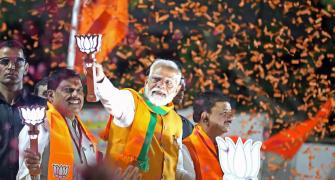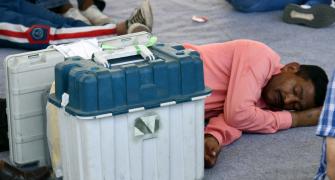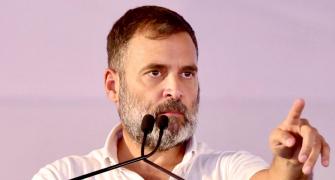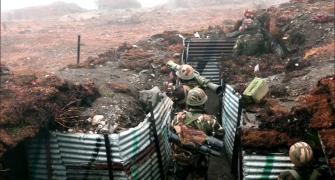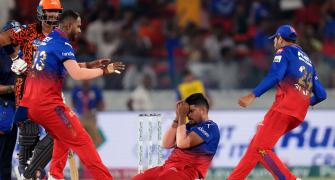Flashing past a gawking suburbia in an imported car was indeed the ultimate power trip of the Licence Raj.
And after more than a decade of reforms and a phalanx of local models to choose from, hotwheels carrying the 'imported' imprimatur remain a big draw -- despite their Rs 20 lakh plus (Rs 2 million plus) price tag.
The only difference now is the process of import.
| |||||||||||
Today, it is the manufacturers who cart these wheels in -- as completely built units.
The exercise has twin benefits -- by selling them, they build a premium image, and widen their product portfolio. And, in some cases, car makers simply import to test the waters before indigenising production.
"We can bring in the latest cars from Europe and America and test market them in India before we decide if producing them locally is a feasible proposition. Introducing technologically advanced cars also helps add value to a brand," said P Balendran, vice president, General Motors India.
The imported car market, where about 8,000-10,000 cars wheeled in every year, is essentially a niche market.
But what is remarkable is that the sales of these cars are vrooming in what is essentially not a volume-driven market.
The Toyota Camry seems to be the hottest of the CBU lot. Launched in October 2002, 545 of these have been sold in the January-August 2003 period.
Around 80 of these cars, which come with a hefty Rs 20 lakh-plus price tag (depending on the city you buy it in) are sold every month. Toyota hopes that at least a 1000 Camrys will zip along Indian roads by the end of the year.
Industry insiders say that Toyota has fared relatively well because it was among the first to utilise the export promotion capital goods route (after quantitative restrictions were removed in 2001) to cater to a 'special category' of buyers like the hospitality industry which can import cars.
Cars brought in through this route are granted a considerable discount on custom duties and the sale is directly invoiced to the manufacturer of the car, in this case Toyota Motors, Japan.
The difference can be seen when you compare the Camry with the General Motors Vectra. Only about 25 Vectras, a shade cheaper than the Camry at Rs 18.95 lakh (Rs 1.895 million), are sold a month.
General Motors discontinued importing the cars through the EPCG route after quantitative restrictions on imported cars were removed in April 2001.
The company is now working at renewing its imports for the hotel industry through the EPCG route.
Some 1,000 Ford Mondeos, a model which is in the same league as the Camry and the Vectra and comes with an almost identical price tag, have been sold in the country since its launch in December 2001.
In the January-August period, 134 Mondeos were sold and Ford expects to sell another 200-250 cars in the last four months of the year.
The pricey Mercedes-Benz too has fared well. Mercedes-Benz imports the M-Class sports utility vehicle (SUV) and the premium SL-500, S-500 and the SLK and CLK sports coupes as CBUs.
It started importing cars in 2002 and sold around 100 that year. Mercedes has sold at least 40 cars so far this year and is hoping to take the count to 100 by the year-end.
But the real action is in the imported sports utility vehicle segment. A virtual slugfest exists here, with Hyundai Terracan, Honda CR-V, Mitsubishi Pajero, Chevrolet Forrester, Suzuki Grand Vitara and the Mercedes M-class vying for consumer attention.
Ford and Mahindra are all set to jump into the fray with their Endeavor and Rexton, respectively.
The Hyundai Terracan was launched in August 2003 and 43 of the SUVs have already been in the first month. Hyundai expects the SUV to fare well it has set itself a sales target 700 Terracans for the first year.
General Motors sells around 10 Foresters a month are sold too and 124 vehicles have been hawked since it was launched in March 2003.
Experts say that car makers have to go through the laborious and expensive process of homologation for each car that they intend to sell in India through the CBU route.
Homologation refers to making alterations in the car -- such as following the Indian norms regarding the shape/illumination of headlights, emission etc. What's more, even a new engine introduction needs the approval of the Automotive Research Association of India.
"The segment was virtually non-existent till even two years back but now more and more car makers are going the length and importing cars," said an industry observer.



